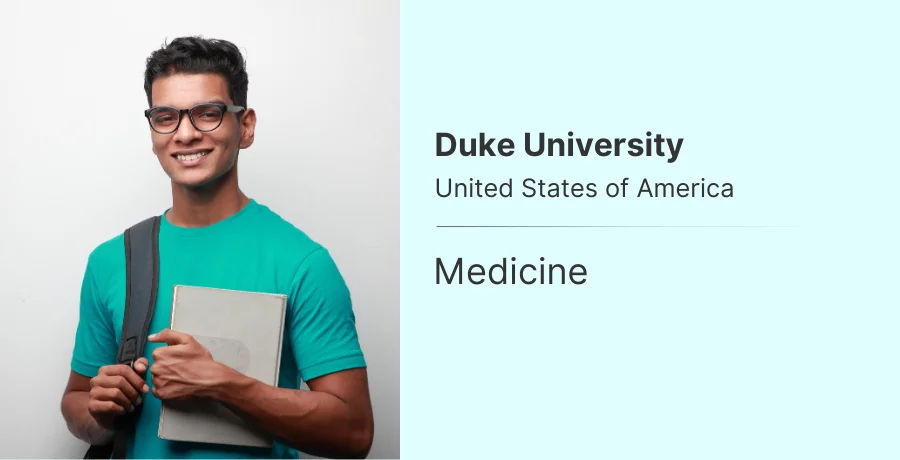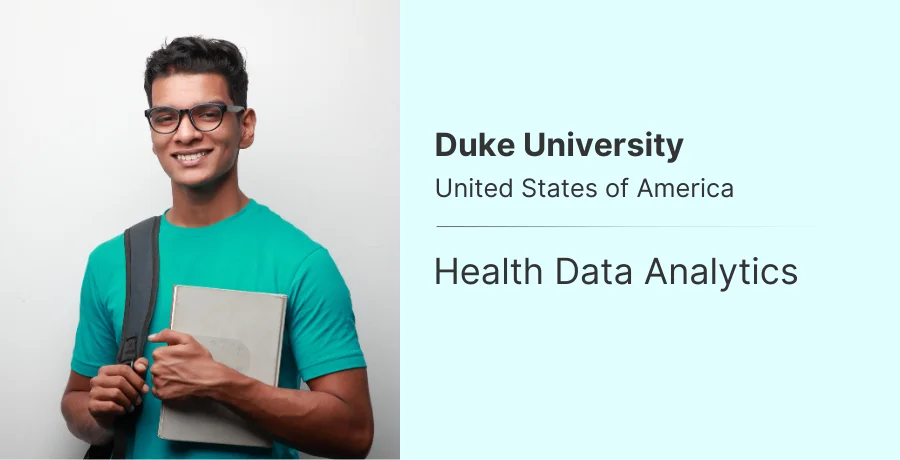Table of Contents
- Health Data Analytics at Massachusetts Institute of Technology (MIT) USA – Highlights
- Why Study Health Data Analytics at Massachusetts Institute of Technology (MIT) USA?
- Massachusetts Institute of Technology (MIT) Health Data Analytics Rankings
- Massachusetts Institute of Technology (MIT) Health Data Analytics Acceptance Rate
- Popular Health Data Analytics Courses at Massachusetts Institute of Technology (MIT) USA
- Admission Requirements to Health Data Analytics at Massachusetts Institute of Technology (MIT) USA
- Cost of Health Data Analytics at Massachusetts Institute of Technology (MIT) USA for Indian Students
- Scholarships at Massachusetts Institute of Technology (MIT) USA
- Job Prospects for Health Data Analytics at USA
- FAQs – Health Data Analytics at Massachusetts Institute of Technology (MIT) USA
Health Data Analytics at Massachusetts Institute of Technology (MIT) USA – Highlights
The Health Data Analytics course at MIT is designed to equip students with the skills needed to analyze complex health data and develop actionable insights. Situated in the vibrant city of Cambridge, Massachusetts, the course benefits from MIT's strong connections to the healthcare industry and its world-class research facilities.
Students in this program will learn advanced techniques in data science, machine learning, and statistical analysis, all tailored to the healthcare context. The curriculum is regularly updated to reflect the latest advancements in the field, ensuring that graduates are well-prepared for the rapidly evolving landscape of health data analytics.
Why Study Health Data Analytics at Massachusetts Institute of Technology (MIT) USA?
Studying Health Data Analytics at MIT offers unparalleled opportunities to engage with cutting-edge research and innovative technologies. MIT's strong emphasis on interdisciplinary collaboration means that students can benefit from the expertise of leading professionals in both the healthcare and data science sectors.
- Access to state-of-the-art facilities and resources.
- Opportunities for networking with industry leaders and researchers.
- Strong focus on practical, real-world applications of data analytics.
- Comprehensive curriculum covering the latest developments in health data science.
Massachusetts Institute of Technology (MIT) Health Data Analytics Rankings
| Ranking Body | Ranking |
|---|---|
| US News and World Report | #1 |
| QS World University Rankings | #2 |
| Times Higher Education (THE) | #3 |
| Academic Ranking of World Universities (ARWU) | #4 |
Massachusetts Institute of Technology (MIT) Health Data Analytics Acceptance Rate
- The acceptance rate for the Health Data Analytics program at MIT is highly competitive.
- Applicants are evaluated based on academic excellence, relevant experience, and potential for impactful research.
Popular Health Data Analytics Courses at Massachusetts Institute of Technology (MIT) USA
- Bachelor's Programs:
- Bachelor of Science in Health Data Science: This program provides a strong foundation in data analysis and its applications in health care.
- Bachelor of Science in Computational Biology: This course focuses on the intersection of computer science and biology, emphasizing data-driven approaches in health science.
- Master's Programs:
- Master of Science in Health Data Analytics: This program offers advanced training in data science techniques specifically tailored for health care applications.
- Master of Science in Bioinformatics: A comprehensive program that combines biology, computer science, and data analytics to solve complex health-related problems.
Admission Requirements to Health Data Analytics at Massachusetts Institute of Technology (MIT) USA
Admission to the Health Data Analytics program at MIT is highly competitive, requiring a strong academic background and relevant experience in data science or health care.
- Entry Requirements:
- Massachusetts Institute of Technology (MIT) Health Data Analytics entrance exam results.
- Minimum GPA and relevant coursework in data science, statistics, or health sciences.
- Eligibility Criteria:
Applicants must have completed a relevant undergraduate degree with a strong emphasis on data science, statistics, or health sciences. Relevant work experience or research in the field of health data analytics is highly desirable.
International students must meet additional requirements, including proficiency in English and the appropriate visa status.
- Documents Required:
- Official academic transcripts.
- Letters of recommendation.
- Statement of purpose.
- Resume or CV.
- Proof of English proficiency (TOEFL or IELTS scores).
- Proficiency Test:
Applicants must demonstrate proficiency in English through standardized tests such as the TOEFL or IELTS. Minimum score requirements may vary, so it's important to check the specific criteria for the Health Data Analytics program.
- Visa Process:
- Secure admission to the Health Data Analytics program at MIT.
- Obtain Form I-20 from MIT.
- Apply for an F-1 student visa at the nearest U.S. embassy or consulate.
- Attend the visa interview and provide all required documentation.
Cost of Health Data Analytics at Massachusetts Institute of Technology (MIT) USA for Indian Students
- Tuition Fees:
The tuition fees for the Health Data Analytics program at MIT are substantial, reflecting the high quality of education and resources provided. Fees may vary depending on the specific program and residency status.
- Cost of Living:
Living in Cambridge, Massachusetts, can be expensive. Students should budget for accommodation, food, transportation, and other personal expenses.
| Expense | Estimated Cost (per year) |
|---|---|
| Tuition Fees | $50,000 - $60,000 |
| Cost of Living | $15,000 - $20,000 |
Scholarships at Massachusetts Institute of Technology (MIT) USA
MIT offers a range of scholarships to support students in the Health Data Analytics program. These scholarships are designed to help alleviate the financial burden and make education more accessible.
- MIT Scholarship: A need-based scholarship that provides financial assistance to students based on their demonstrated financial need.
- Health Data Science Fellowship: This fellowship supports students pursuing advanced studies in health data analytics, providing funding for tuition and living expenses.
Job Prospects for Health Data Analytics in USA
Graduates of the Health Data Analytics program at MIT are highly sought after in the job market, with opportunities in various sectors including healthcare, pharmaceuticals, and technology.
- Health Data Analyst
- Biostatistician
- Clinical Data Manager
- Health Informatics Specialist
| Job Title | Average Salary |
|---|---|
| Health Data Analyst | $70,000 - $90,000 |
| Biostatistician | $80,000 - $100,000 |
| Clinical Data Manager | $75,000 - $95,000 |
| Health Informatics Specialist | $85,000 - $105,000 |
FAQs – Health Data Analytics at Massachusetts Institute of Technology (MIT) USA
- Can I work while studying Health Data Analytics at MIT?
Yes, students can work part-time while studying, but it's important to manage time effectively to balance work and academic commitments.
- What are the advantages of studying Health Data Analytics at MIT?
MIT offers cutting-edge research facilities, access to industry leaders, and a comprehensive curriculum that prepares students for the evolving field of health data analytics.
- What is the average salary for graduates of the Health Data Analytics program?
The average salary for graduates ranges from $70,000 to $105,000, depending on the specific job role and industry.
- How long does it take to complete the Health Data Analytics program at MIT?
The duration of the program varies, with bachelor's programs typically taking four years and master's programs taking one to two years.
- What exams are required for admission to the Health Data Analytics program at MIT?
Applicants may need to submit GRE scores, along with proof of English proficiency through TOEFL or IELTS scores.
- What are the popular Health Data Analytics courses at MIT?
Popular courses include the Bachelor of Science in Health Data Science, Master of Science in Health Data Analytics, and the Master of Science in Bioinformatics.












